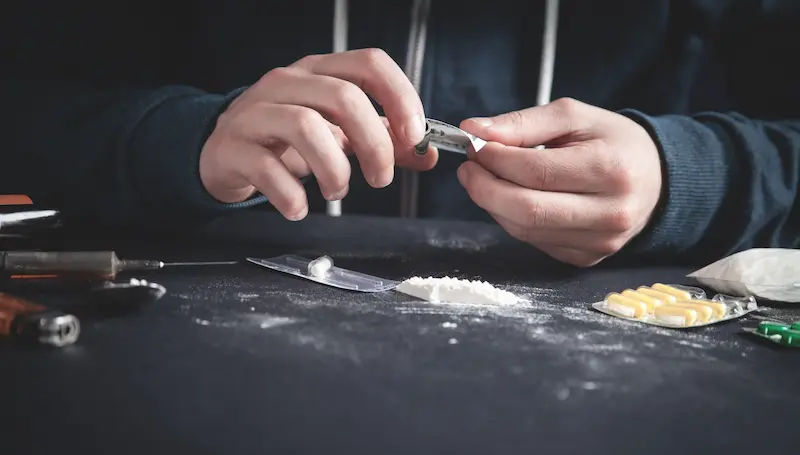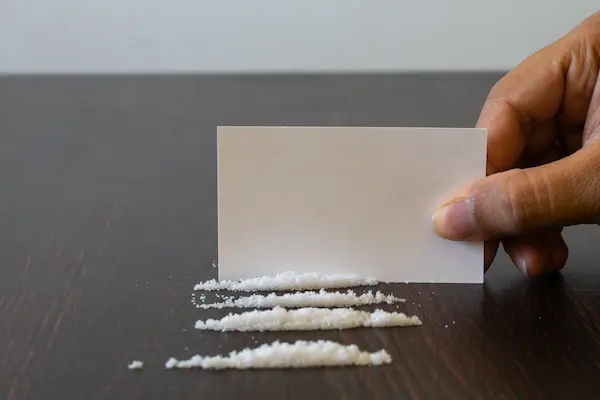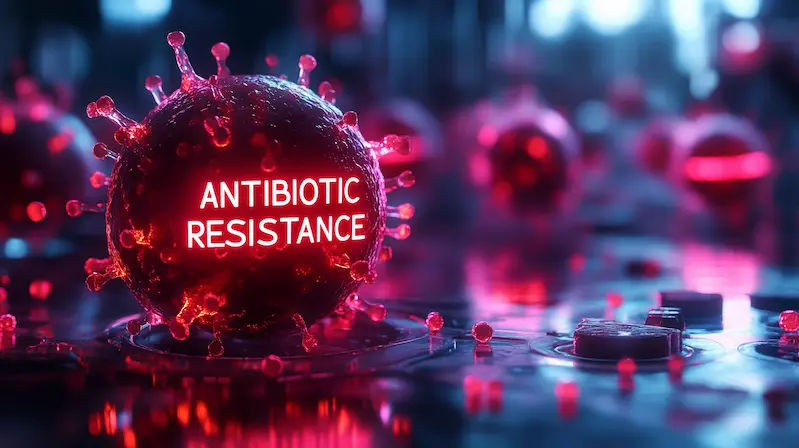Guide to Substance Abuse And Addiction In Men
Explore a comprehensive guide to substance abuse and addiction in men. Learn about unique risk factors, warning signs, common substances of abuse, treatment options, and relapse prevention strategies.


Introduction
Substance abuse and addiction represent a profound health crisis, impacting millions of lives globally. While it affects all demographics, men face a unique set of challenges, societal pressures, and stigmas that can influence both the development of addiction and the willingness to seek help. Often dubbed a "silent struggle," male addiction is frequently masked by cultural norms that equate masculinity with stoicism and self-reliance. This guide delves deep into the world of substance abuse and addiction specifically in men. We will explore the signs, root causes, and devastating impacts, but most importantly, we will outline the clear, achievable paths toward treatment, recovery, and reclaiming a life of health and purpose. If you or a man in your life is struggling, understanding this issue is the first critical step toward healing.
What is Substance Abuse and Addiction?
Defining Substance Use Disorder (SUD)
Substance use disorder (SUD) is a medical condition characterised by the uncontrollable use of a substance despite harmful consequences. It's a complex disease that affects brain function and behaviour, leading to an inability to control the use of legal or illegal drugs or medication. The DSM-5 (Diagnostic and Statistical Manual of Mental Disorders) outlines 11 criteria for diagnosing SUD, including factors like taking the substance in larger amounts over time, failed attempts to quit, and continued use despite knowing it causes physical or psychological problems.
The Difference Between Misuse, Abuse, and Addiction
These terms are often used interchangeably, but they exist on a spectrum:
Misuse: Using a prescription drug in a way not intended by the prescribing doctor (e.g., taking someone else's medication or using it to get high).
Abuse: The habitual use of a substance for non-medical reasons to alter one's mood, emotion, or state of consciousness, leading to negative consequences.
Addiction: The most severe form of SUD, marked by a compulsive and physiological need for the substance, often accompanied by tolerance (needing more to achieve the same effect) and withdrawal symptoms upon cessation.
Consult a Specialist for the best advice
Why Men Are Uniquely Affected: Statistics and Societal Pressures
Prevalence of Addiction in Men vs. Women
Statistics consistently show that men are more likely than women to use almost all types of illicit drugs. According to the National Institute on Drug Abuse (NIDA), men have higher rates of use or dependence on illicit drugs and alcohol. They are also more likely to require emergency room treatment and experience fatal overdoses. This disparity is not just biological but is heavily influenced by psychosocial factors.
The "Silent Struggle": Masculinity and Mental Health Stigma
From a young age, many men are socialised to be tough, independent, and to suppress emotions. This cultural script can be devastating for mental health. Seeking help for psychological pain or substance abuse is often wrongly perceived as a sign of weakness. This stigma forces many men to self-medicate underlying issues like depression, anxiety, or trauma with alcohol or drugs instead of confronting them healthily, creating a vicious cycle of addiction and worsening mental health.
Recognising the Signs of Addiction in Men
Behavioural and Social Red Flags
Secrecy and Isolation: Withdrawing from family and friends to use substances alone.
Neglecting Responsibilities: Performance at work or school begins to slip; ignoring household chores and obligations.
Financial Issues: Unexplained need for money, borrowing or stealing, or selling possessions to fund their habit.
Risk-Taking Behaviours: Driving under the influence or engaging in dangerous activities while intoxicated.
Changes in Social Circle: Abandoning old friends for a new group that shares their addictive behaviours.
Physical Symptoms and Health Warning Signs
Changes in Appearance: Poor hygiene, sudden weight loss or gain, bloodshot eyes, or unexplained bruises.
Sleep Disturbances: Insomnia or hypersomnia (sleeping too much).
Tolerance and Withdrawal: Needing significantly more of the substance to get the same effect and experiencing nausea, sweating, shaking, or anxiety when without it.
Health Complaints: Frequent illnesses, a persistent cough, or a general decline in physical health.
Common Substances of Abuse Among Men
Alcohol Use Disorder
Alcohol is one of the most commonly abused substances among men. Signs of alcoholism in men often include drinking alone, becoming angry or violent when drunk, and an inability to control the amount consumed. Long-term risks include liver disease, heart problems, and various cancers.
Opioid and Prescription Painkiller Addiction
The opioid crisis has hit men particularly hard. This category includes heroin and prescription pain relievers like oxycodone and hydrocodone. Male opioid addiction often starts with a legitimate prescription for an injury but can quickly spiral into dependence and addiction due to the highly addictive nature of these drugs.
Stimulant Abuse (Cocaine, Methamphetamine)
Stimulants are often used to enhance performance, increase energy, or achieve a euphoric high. Abuse can lead to severe psychological dependence, paranoia, cardiovascular damage, and aggressive behaviour.
Overcoming the Stigma: The Importance of Seeking Help
The greatest barrier to recovery for many men is the internalised belief that they should be able to handle it themselves. It is crucial to reframe seeking help not as a failure but as the ultimate act of strength and courage. Acknowledging the problem is the first and most brave step. Confiding in a trusted friend, family member, or consulting a doctor online with Apollo24|7 for a confidential assessment can provide a safe starting point without judgment. Professional guidance is not a crutch; it's a toolset for rebuilding.
Treatment Options for Substance Abuse in Men
Effective treatment is multifaceted and should be tailored to the individual.
The First Step: Detoxification and Medical Management
Medically supervised detox is often necessary to manage potentially dangerous withdrawal symptoms safely. This process clears the substance from the body and is the foundation for further treatment.
Therapeutic Modalities: CBT, DBT, and Group Therapy
Therapy is the cornerstone of addressing the root causes of addiction.
Cognitive Behavioural Therapy (CBT): Helps identify and change negative thought patterns and behaviours related to substance use.
Dialectical Behaviour Therapy (DBT): Focuses on building skills in mindfulness, distress tolerance, emotion regulation, and interpersonal effectiveness.
Group Therapy: Provides peer support, reduces feelings of isolation, and allows men to learn from others facing similar challenges in a structured setting.
Inpatient vs. Outpatient Rehabilitation Programs
Inpatient/Residential Rehab: Provides 24/7 care in a structured environment, ideal for severe addictions or those with unstable home environments.
Outpatient Rehab: Allows individuals to live at home while attending treatment sessions several times a week. This is suitable for those with a strong support system and less severe SUD.
The Road to Recovery and Long-Term Sobriety
Recovery is a lifelong journey, not a single destination.
Building a Support System and Utilising Peer Groups
Connecting with others who understand the struggle is invaluable. Support groups like Alcoholics Anonymous (AA), Narcotics Anonymous (NA), or SMART Recovery provide a community of accountability and understanding. Rebuilding trust with family is also a critical component.
Relapse Prevention Strategies and Coping Mechanisms
Relapse is a common part of the recovery process for many, but it can be prevented. Strategies include identifying personal triggers (people, places, emotions), developing healthy coping skills (exercise, meditation, hobbies), and having a solid plan for what to do if cravings arise.
Rebuilding Your Life After Addiction
Addiction recovery programs for men should also focus on rebuilding a meaningful life. This involves repairing relationships, pursuing career or educational goals, and rediscovering passions and interests that provide fulfillment without substances.
Conclusion
The path of substance abuse and addiction is isolating and dangerous, but it is not hopeless. For men caught in this struggle, understanding that vulnerability is a strength and that asking for help is a powerful act can be life-changing. Recovery is not about erasing the past but about building a new, stronger future. It requires courage, support, and professional guidance. Every journey begins with a single step—whether it's talking to a loved one, calling a helpline, or booking a physical visit to a doctor with Apollo24|7 to discuss treatment options. Your health and well-being are worth the effort. Reclaiming your life from addiction is the ultimate testament to resilience.
Consult a Specialist for the best advice
Consult a Specialist for the best advice

Dr. Vivek D
General Physician
4 Years • MBBS
Bengaluru
PRESTIGE SHANTHINIKETAN - SOCIETY CLINIC, Bengaluru

Dr Syed Mateen Pasha
General Physician
2 Years • MBBS
Bengaluru
PRESTIGE SHANTHINIKETAN - SOCIETY CLINIC, Bengaluru

Dr. Ashita Kuruvilla
General Physician/ Internal Medicine Specialist
7 Years • MBBS
East Midnapore
VIVEKANANDA SEBA SADAN, East Midnapore

Dr. Debdatta Pati
Psychiatrist
18 Years • MBBS, DPM, MD (PSYCHIATRY)
Kolkata
MCR SUPER SPECIALITY POLY CLINIC & PATHOLOGY, Kolkata

Dr. Anand Ravi
General Physician
2 Years • MBBS
Bengaluru
PRESTIGE SHANTHINIKETAN - SOCIETY CLINIC, Bengaluru
More articles from Drug Abuse
Frequently Asked Questions
1. What are the first signs of alcoholism in a man?
Early signs often include an increased tolerance for alcohol, drinking alone or in secret, using alcohol as a way to unwind from stress, and becoming irritable or defensive when questioned about their drinking habits.
2. How can I help my husband or father who is struggling with addiction?
Approach him with compassion and concern, not accusation. Use 'I' statements ('I am worried about you because I've noticed...') and encourage him to talk to a professional. Research addiction recovery programs for men and offer to help make an appointment. Remember, you cannot force someone to get help; they must be willing.
3. What is the success rate of addiction treatment?
Success rates vary based on the individual, the substance, and the treatment program. Rather than seeing recovery as a binary 'success/failure,' it's more helpful to view it as a process where longer periods of treatment often lead to better outcomes. Relapse can be a part of the journey for some, but it does not mean treatment has failed.
4. Are there medications that can help with addiction treatment?
Yes, for certain substances. Medication-Assisted Treatment (MAT) uses FDA-approved medications, combined with counseling and behavioural therapies, to treat Substance Use Disorders. For example, medications like buprenorphine or naltrexone are highly effective for opioid addiction.
5. Does insurance cover addiction treatment?
Under the Affordable Care Act (ACA), most insurance plans are required to cover mental health and substance abuse treatment services. Coverage details can vary, so it's important to check with your specific insurance provider and the treatment center to understand what is included.


